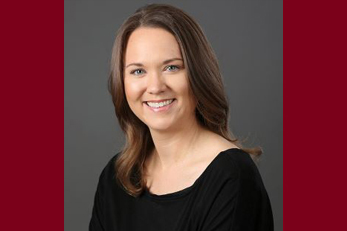Research Spotlight: Dr. Lisa Hillman, PharmD, BCACP (SAPh PhD Candidate/Graduate Student)
October 26, 2021

Tell us about your research
I am using a phenomenological approach to gain a humanistic perspective on the everyday experience African American women living with or at high risk for chronic kidney disease have with taking medications in their daily lives. Given the cross-cultural nature of this study, my preliminary and on-going work includes engaging with and becoming educated about the African American community in addition to extensive self-reflection and building self- awareness. These are essential components to my research process and activities as my thoughts, understandings, and views continue to evolve and emerge. While this study is not focused on health disparities and inequities per se, it is the intent that this investigation will lead to care and further research that contribute to improved, meaningful outcomes for these patients. In addition, this work has led to important insights and key learnings about areas that should be acknowledged in caring for and doing research with these patients.
Do you have any partners in your research?
As a graduate student, I consider the community with which I am working, my advisors, committee members, other faculty mentors and fellow graduate students as the partners in my research project. I could not have done any part of this alone and have learned more deeply and clearly the value of each person’s expertise, perspective, and critical feedback. I continue to reflect on the value of future partners as I move into the dissemination phase as well as development of future projects and ideas.
What did you find?
While my analysis of interview data is on-going, my initial learning was that this research was not just about what the medication experience is, but about what it means as a practitioner or researcher to be able to listen for it. There are clear power dynamics at play in spaces of research and healthcare, and we play an important role in how we show up to these spaces as researchers or practitioners. I came to believe that it was my job to create the safe and inviting space for these stories to be shared openly and honestly, and then to listen actively, attentively and with reverence and respect. The stories of these medication experiences are both vulnerable and empowering and require a relationship that is trusting and empathetic in nature to be shared and expressed.
Why do your findings matter?
Qualitative studies like this are exploratory in nature and seek to elicit the language and shared meaning that patients experience as part of everyday life with taking medications. Understanding lived experience to gain a humanistic perspective on patients and healthcare issues is critical to meeting patients where they are at, empowering them to engage with and take an active role in their care. Also, learnings from this study enable us, as practitioners, to recognize patients both as vulnerable and empowered individuals. This work has shown me that confronting health inequities and disparities requires the health care professional do the difficult, and sometimes uncomfortable, on-going self-awareness work to both be able to see where we may be a barrier for patients feeling safe to share their medication experiences and to listening for these experiences when they are being shared with us.
What do you hope people will take away from this research?
My hope is that practitioners will be better equipped to listen for the experiences patients have with medications and better connect to them. As practitioners create space for these experiences to emerge, they will be better able to identify medication problems that patients may be living through and then to engage in decision-making that has balanced patient input. This ultimately can create a foundation into which new knowledge can be incorporated by practitioners so that they will more effectively align interventions with outcomes that are understandable to patients and meaningful to their lives.
This project was funded by the Doctoral Dissertation Fellowship 2019-2020.